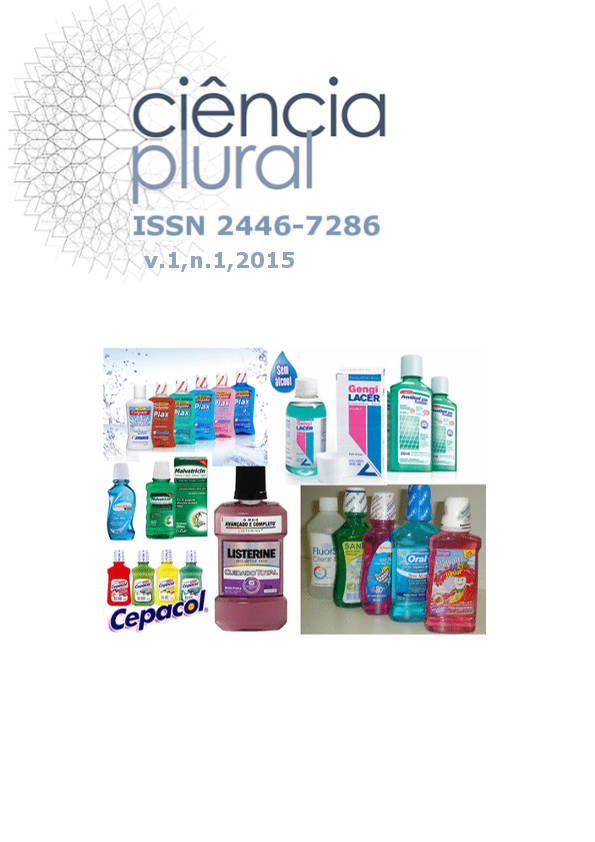The cordel (folk literature) as pedagogical-didactic tool in education, motivation and promotion of the oral health
Keywords:
Health Promotion, Health Education, Literature, Folklore, Oral Health, PamphletsAbstract
Introduction: The "CORDEL (Folk Literature)" configures itself, since its arrived from Portugal in the colonial era, to the present day in Brazil in a communicative and interactive tool that tries to perpetuate the folk culture. Objective: To analyze the effectiveness of the string as a pedagogical strategy in oral health learning. Methods: We used a self-administered questionnaire survey of school of previous knowledge about 9 to 14 years socially41Revista Ciência Plural, 2015; 1(1): 40-9.disadvantaged, enrolled in a public institution of Natal-RN education on oral health and an open interview with two generating questions. From the emerging knowledge were made five twine. There was a recital for five days after it was re-applied the same questionnaire to assess whether the prior knowledge were added or modified after the intervention. Results: The difference between the correct answers before and after the intervention was evaluated by Wilcoxon test for a 95% confidence level. The median level was significant hit going from 5.00 (before) to 8.50 (after) to a value of p <0.001. Conclusion: The “Cordel” was effective as a creative and dynamic teaching strategy, dissemination of knowledge, motivation, education and promotion of oral health.in the colonial age, in an interactive and communicative tool that tries to perpetuate the folk culture.Downloads
Download data is not yet available.
Downloads
Published
23-04-2015
How to Cite
CASTRO, M. C. de S.; COSTA, I. do C. C. The cordel (folk literature) as pedagogical-didactic tool in education, motivation and promotion of the oral health. Revista Ciência Plural, [S. l.], v. 1, n. 1, p. 40–49, 2015. Disponível em: https://periodicos.ufrn.br/rcp/article/view/7322. Acesso em: 23 dec. 2024.
Issue
Section
Artigos
License
À Revista Ciência Plural ficam reservados os direitos autorais referente a todos os artigos publicados.

 Português (Brasil)
Português (Brasil) English
English Español (España)
Español (España)










2.png)
